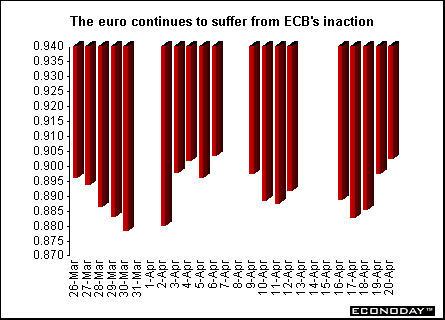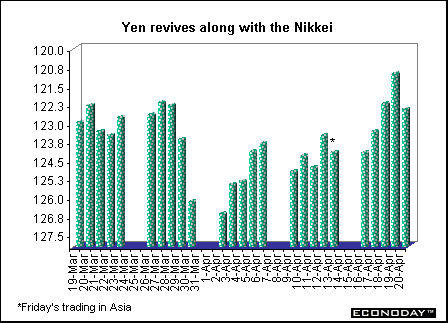 |

Currencies
The dollar fell to a three week low against the yen and dropped against the euro on concern that the U.S. economy is weaker than previously thought. Declines for the dollar extended a loss sparked late in the week by the Fed's surprise 50 basis point interest rate reduction to 4.5 percent. For the first time, the U.S. policy making rate is below the ECB's (4.75 percent), which could hurt demand for fixed income investments denominated in dollars. The concern is that the Fed's action means that the economy is going to be slower to recover than the market had hoped.

Last year many European company executives welcomed the euro's weakening, savoring the boost it gave exports to the fast growing U.S. economy. Now the euro is sliding again. This time around, European exporters are selling to a slowing U.S. economy, and they are worried about higher costs due to the euro. While a falling euro makes exports cheaper, it also drives up fuel and other costs that are priced in dollars. Shipping, transit and industries with high production costs, such as machine tool makers, are hardest hit. With U.S. growth expected to slow to less than 2 percent this year after expanding 5 percent last year, the U.S. market is less likely to buy more European products even if the falling euro makes them cheaper. European business executives fear not just the bottom line effects but the psychological effects on their customers as well. Companies that do not export do not benefit from the flaccid euro.
The yen fiddled around as contradictory statements from policy makers made the rounds. First they said that they were happy to see the yen depreciate. Then they said that they really didn't mean that. Then there were statements alluding to the fact that it was okay for the currency to be strong. Traders went along for the ride, responding to each statement. However, with the selection of the new prime minister just days away (April 24) and the G-7 finance ministers meeting in Washington next weekend, currency traders will probably wait to see who is finally chosen and whether G-7 will have anything to say about foreign exchange rates. The yen did have a positive week, thanks to the rising Nikkei.



Introduction • Global Stock Market Indexes • Recap of Global Markets • Currencies • Indicator Scoreboard

The Bottom Line • Looking Ahead
|
 |